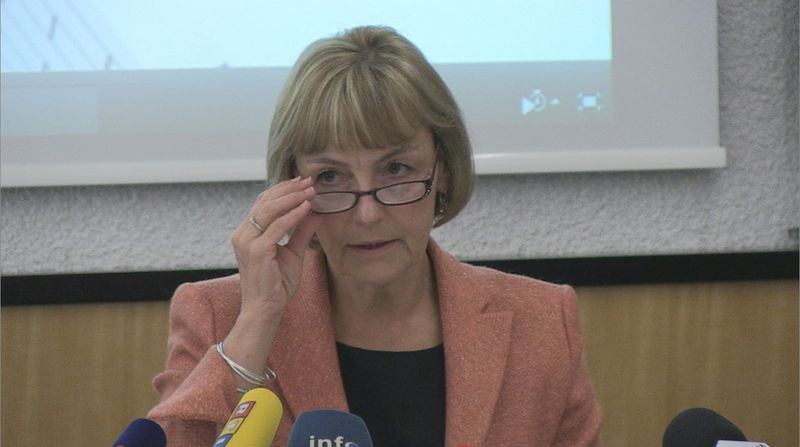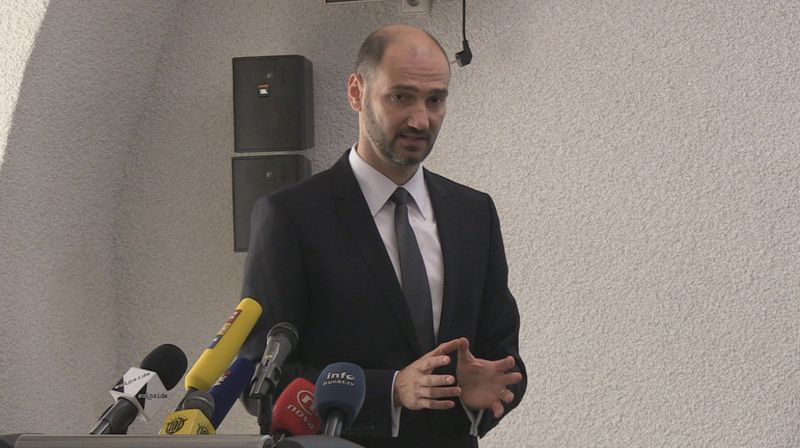Croatia Gears Up Its Diplomacy in a Battle with Recession
Adelina Marini, October 4, 2013
 Croatian diplomacy is transforming to put itself in service of the economy through a number of measures which the Ministry of Foreign and European Affairs has enforced as of October 1st. After a deep analysis and a selection of the most appropriate European models Croatia is introducing economic diplomacy because, as deputy Foreign Minister Joško Klisović explained, the improvement of the Croatian economy should be a number one national interest. All embassies, consulates and honourable consuls will be engaged to actively work on the three main pillars of the Croatian economic diplomacy. Those are: export, foreign investments, protection of the interests of Croatian companies abroad. Not only will they be engaged, but their work will be checked every six months and if they do not do it well there will be sanctions and even layoffs. But if they do good work, they will be financially rewarded and will grow professionally.
Croatian diplomacy is transforming to put itself in service of the economy through a number of measures which the Ministry of Foreign and European Affairs has enforced as of October 1st. After a deep analysis and a selection of the most appropriate European models Croatia is introducing economic diplomacy because, as deputy Foreign Minister Joško Klisović explained, the improvement of the Croatian economy should be a number one national interest. All embassies, consulates and honourable consuls will be engaged to actively work on the three main pillars of the Croatian economic diplomacy. Those are: export, foreign investments, protection of the interests of Croatian companies abroad. Not only will they be engaged, but their work will be checked every six months and if they do not do it well there will be sanctions and even layoffs. But if they do good work, they will be financially rewarded and will grow professionally.
The introduction of economic diplomacy is not a novelty because First Deputy Prime Minister and Minister of Foreign and European Affairs Vesna Pusić has mentioned it regularly almost since the beginning of her term in office. Practically, the novelties are not many because, in her words, the Croatian representations abroad are already a good foundation for such a transformation. Some ten or more embassies or destinations with political and economic representations work with a focus on political representation, while all the rest are entirely committed on promoting the Croatian economy.
What changes, though, is that a committee of internationalisation is formed which will be governed by a council. In it will be represented all ministers related in one way or another with the economy, trade unions, employers organisation or even the Economic Institute have a seat in the committee, because the purpose is, as Minister Pusić and her deputy Klisović say, diplomacy should have a connection with reality. Before going for a mandate ambassadors, consuls and trade representatives will go through special training with the help of foreign specialists. They will also pass training at Croatian companies to understand better what their needs are. Their work, afterwards, will be assessed on the basis of three simple criteria: number of exporters, number of attracted investments, number of solved cases because, aside from promoting Croatia as an appropriate destination for investments, the diplomatic representations of the country abroad will work actively to protect the interests of Croatian exporters.
This includes providing information to all interested parties about the general conditions to do business in the country itself, like, for instance, taxes, social security, etc, providing assistance to remove trade barriers, organising individual or group business visits and even meetings. Assistance will be provided also for participation in fairs. Last but not least is another service the embassies will provide  - assistance in finding appropriate business partners. The representations will commit to support a good network of exporters and will organise monthly meetings in the embassies.
- assistance in finding appropriate business partners. The representations will commit to support a good network of exporters and will organise monthly meetings in the embassies.
All services the embassies and the ministry provide are already available on the website of the Croatian foreign ministry. Every person interested in doing business in a certain country can find detailed information [in Croatian language] on the website, collected from CIA World Factbook data, the European statistical bodies, national central banks and also data provided by embassies on the ground. For example, from the data [in Croatian language] for Bulgaria it can be seen that the country had in 2012 a GDP per capita 5436 euro, that the real growth of the economy in 2012 was 0.7%, the country's credit rating is Baa2 according to Moody's, BBB according to Standard & Poor's and BBB- according to Fitch. It can also be seen that the GDP structure is 63.2% services, 30.4% industry and 6.4% agriculture. The most important industries are electric energy, gas, food, drinks, tobacco, chemical produces, etc.
From the Bulgarian section a foreign investor (Croatian) can see that the tax on profit is 10%, same as the income tax. As a matter of fact, the website provides a very good opportunity for comparisons. Absolutely randomly (although bearing in mind Croatia's priority trade zones) I opened the page of the Czech Republic [in Croatian language], where another picture has revealed. GDP per capita of the Czechs was 20 200 euros in 2012, the economic growth was negative (-1.2%), but instead the Czech Republic has an excellent credit rating. According to Moody's it is A1, Standard & Poor's gives the country AA- and Fitch - A+. However, the tax environment is not as favourable as the Bulgarian.
Three are the main zones of interest for the Croatian economic diplomacy. The first are the country's EU partners, which means Bulgaria as well. Second are the CEFTA countries - those are the countries from the Central European Free Trade Agreement, covering all Croatian partners from former Yugoslavia. It is important to note that precisely in those priority areas for Zagreb's economic diplomacy local experts in economy and investments will be hired. Their advantage is that they know best the  situation on the ground. They will not be appointed with a specific term, but according to the work they do. The third zone is the broader Middle East and the US.
situation on the ground. They will not be appointed with a specific term, but according to the work they do. The third zone is the broader Middle East and the US.
Alongside the transformation of Croatian diplomacy entirely toward the economy, the Ministry of Foreign and European Affairs hopes to significantly improve the efficiency of the public administration. All services that are offered are online. On the ministry's website there are applications for specific services whose path throughout the administration can be followed and wherever the link is disrupted, there will be an adequate reaction. Joško Klisović explained that this is an entirely national project which, however, will work within the framework of what is agreed on EU level in terms of trade rules, and also according to the WTO rules.
 Kolinda Grabar-Kitarovic | © KGK
Kolinda Grabar-Kitarovic | © KGK Jozo Rados | © European Parliament
Jozo Rados | © European Parliament Aleksandar Vucic, Andrej Plenkovic | © Vlada RH
Aleksandar Vucic, Andrej Plenkovic | © Vlada RH